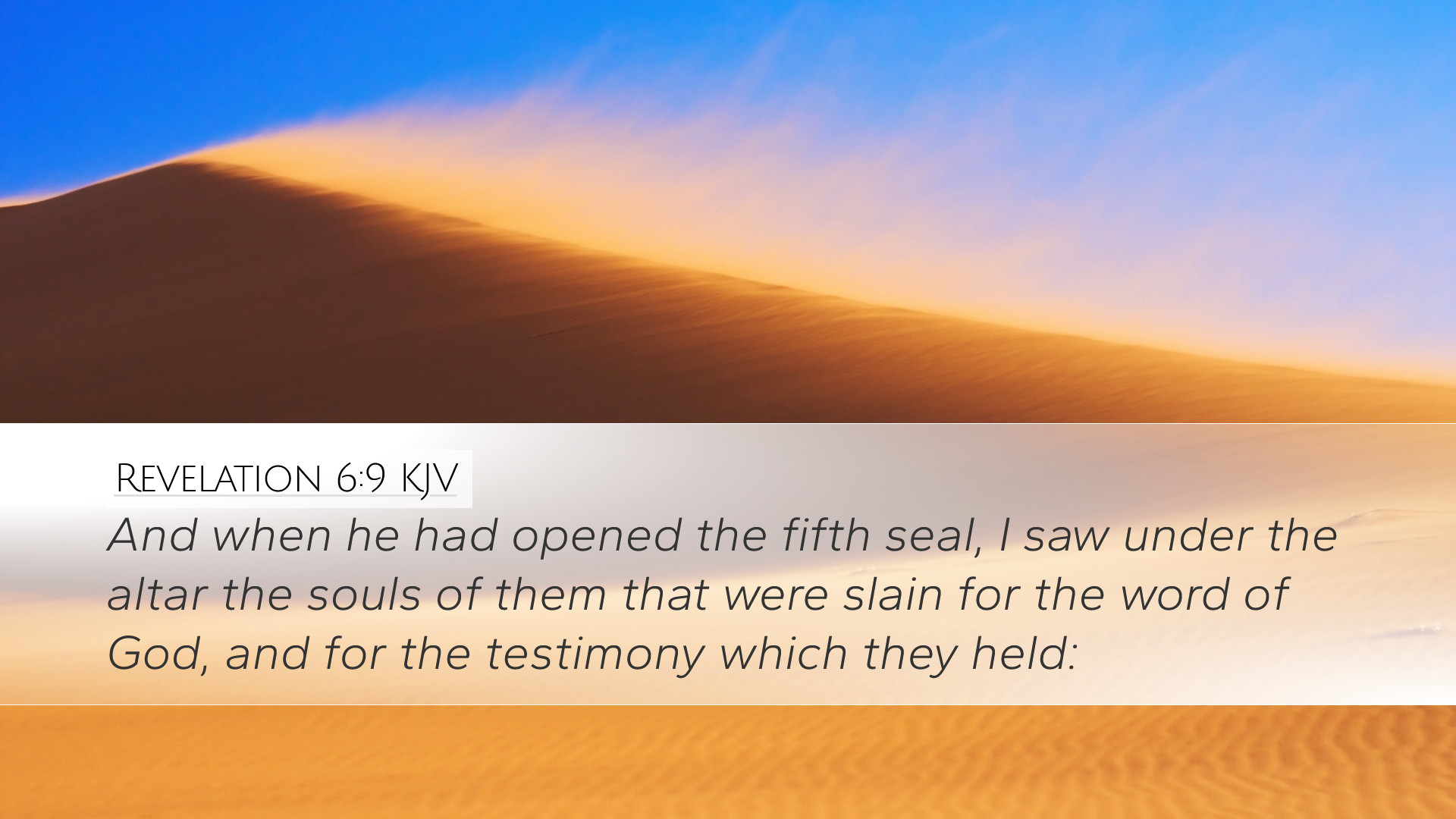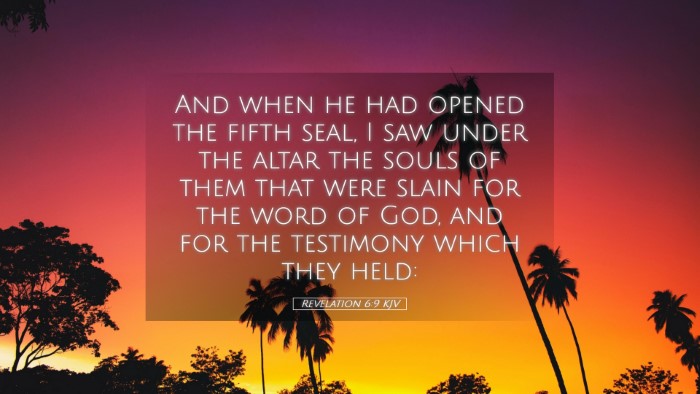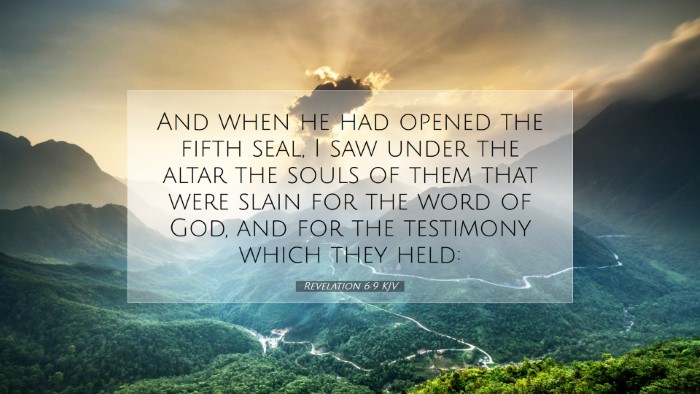Commentary on Revelation 6:9
Verse: "When he opened the fifth seal, I saw under the altar the souls of those who had been slain for the word of God and for the testimony they had upheld."
Introduction
This poignant verse from the Book of Revelation offers profound insights into the nature of suffering, martyrdom, and divine justice. Here, John reveals a vision that unveils the fate of those who have been persecuted for their faith. The symbolism in this passage is rich, drawing from various theological interpretations that reflect both historical context and future fulfillment.
Summary of Insights
- Martyrdom and Suffering:
The opening of the fifth seal signifies a crucial moment where the reality of martyrdom is acknowledged. As Matthew Henry notes, the souls under the altar represent those who suffered for their allegiance to God’s word. Their sacrifice calls attention to the trials faced by believers throughout the ages.
- The Symbolism of the Altar:
Adam Clarke emphasizes the significance of the altar, which represents both sacrifice and worship. The position of the souls "under the altar" indicates their ultimate sacrifice for the faith. This imagery serves as a powerful reminder of the cost of discipleship and the honor of standing firm in one's testimony amidst persecution.
- The Nature of the Souls:
Albert Barnes articulates that these souls are not merely individuals but symbolize a collective group of believers who have endured persecution throughout history. This perspective illuminates the continuity of faith and the shared experiences of God's people, affirming the message that their sufferings were not in vain.
- The Witness of the Martyrs:
The passage underscores the idea of testimony as a core component of faith. Those seen by John are revered not only for their deaths but for the steadfastness of their witness. As noted by Henry, their cry for justice reflects a yearning for divine retribution against those who perpetrated evil. This element echoes the justice that God promises to execute.
- Divine Justice and Vindication:
The cry of the martyrs, as Clarke discusses, raises an important theological concept of divine justice. The souls under the altar plead for vengeance, reflecting the innate human desire for fairness and vindication. This call for justice bridges the gap between earthly suffering and heavenly acknowledgment, highlighting God's ultimate authority in rectifying wrongs.
Theological Reflections
The rich imagery and profound implications of Revelation 6:9 contribute to significant theological reflections as follows:
- The Reality of Martyrdom:
This passage affirms the real and ongoing experiences of persecution faced by believers. It challenges the modern church to remember those who suffer and to engage in active solidarity with the persecuted church around the globe.
- Mystery of Suffering:
While faithfulness can lead to suffering, as evidenced by the martyrs, the text is a reminder that such suffering is ultimately understood within the scope of God's redemptive plan. It allows students and scholars to explore the tension between suffering and divine sovereignty.
- Assurance of Justice:
The assurance that God sees and will act in justice is central to the Christian hope. As Barnes notes, the cries of the martyrs exemplify humanity’s hope for restitution and the promise that God will right every wrong.
Application for Today’s Believers
Revelation 6:9 serves as a clarion call for contemporary believers to reflect on their commitment to faith amid trials and tribulations:
- Encouragement in Trials:
Believers facing persecution today are reminded that their struggles unite them with the heavenly host. Such solidarity offers immense encouragement, knowing they participate in the same lineage of faith.
- Commitment to Testimony:
Living authentically for Christ, much like the martyrs, requires a deep commitment to testify about God’s goodness and truth, regardless of the cost. This aligns with the call in the Great Commission to bear witness boldly.
- A Call for Justice:
In a world rife with injustice, believers are compelled to advocate for those who suffer wrongfully. Engaging in social justice reflects an understanding of God’s character and the kingdom values we are called to embody.
Conclusion
Revelation 6:9 presents a deeply meaningful passage that encapsulates the essence of resurrection hope for the martyrs and all believers. Through reflection on their sacrifice, we are encouraged to embrace our own testimonies of faith with courage, knowing that God sees and values our fidelity. The insights from public domain commentaries enrich our understanding, providing a framework for application that resonates through generations.


